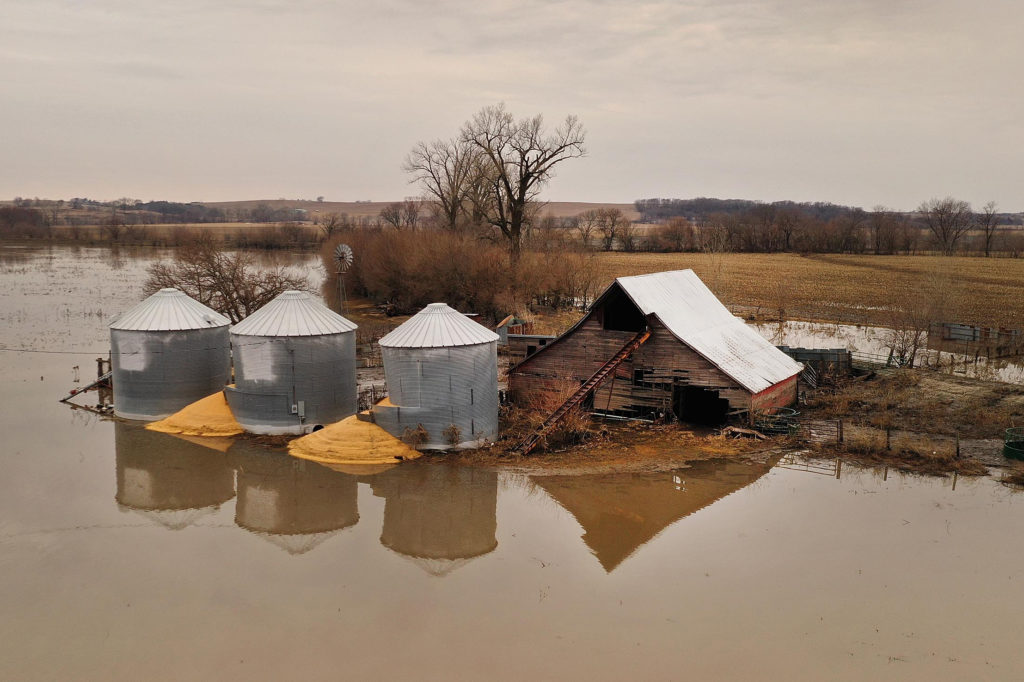
Louisiana electric cooperatives have endured their share of natural catastrophes—notably, Hurricane Katrina in 2005—and the long road to recovery. So when devastation from Nebraska’s historic floods began to make headlines, directors of the Association of Louisiana Electric Cooperatives knew just what to do.
On March 25, ALEC directors approved a $5,000 donation from its disaster relief fund to the Nebraska Farm Bureau Foundation to help communities up north deal with historic floods caused by a mid-March bomb cyclone.
“We thought it was a way to return the favor when another state is going through times that we know all too well,” said Jeffrey Arnold, CEO of the Association of Louisiana Electric Cooperatives in Baton Rouge. “We’ve felt the pain, and we know what they’re going through. Anything you give, especially from fellow co-ops, is cherished.”
The “heartwarming” donation—the latest example of the sixth cooperative principle of cooperation among cooperatives—lifted the spirits of Nebraska public power districts and co-ops, said Kim Christiansen, general manager and executive vice president of the Nebraska Rural Electric Association in Lincoln. The NREA will forward the donation to the farm bureau.
“The absolute willingness of co-ops stepping up to help without being asked makes you proud to be part of the family,” said Christiansen, adding that she’s received offers of help from other statewide associations, too.
Levee breaches on the Missouri River and spring thaws have swamped about one-third of the state, and “impacts to rural areas will go on for years,” she said. “The loss of livestock keeps rising and the impacts of the loss of topsoil will be far-reaching.”
Christensen added that Nebraska co-ops likely won’t have final estimates for property damage for some time because they’re waiting on whether poles and other infrastructure withstand saturated ground.
Louisiana co-ops have weathered their share of adversity and have been the beneficiaries of co-op generosity: $2 million in 2005 after Hurricanes Katrina and Rita and $600,000 in 2016 after horrific floods in Baton Rouge. The next year, when Hurricane Harvey slammed Texas, ALEC directors returned the favor, approving a $7,000 donation to co-ops.
“The Texas Electric Cooperatives’ Hurricane Harvey Disaster Relief fund received $5,000, and $2,000 went to a supply drive organized by DEMCO (Dixie Electric Membership Corporation in Baton Rouge) for Hurricane Harvey victims,” said Beama Pierce, chief operating officer at the Louisiana statewide association.
The Nebraska floods have hit a particular nerve at ALEC, said Pierce, herself a Nebraska native. Many Louisiana directors are farmers or have family and friends affected by the floods, she said.
For Arnold, who began at ALEC last fall, the experience was an introduction to cooperation among cooperatives. “As the vice president, J.R. Hickman, said, ‘We’d much rather be on the giving side than on the receiving side,’” said Arnold. “We know what it feels like to be on the receiving side.”
Victoria A. Rocha is a staff writer at NRECA.